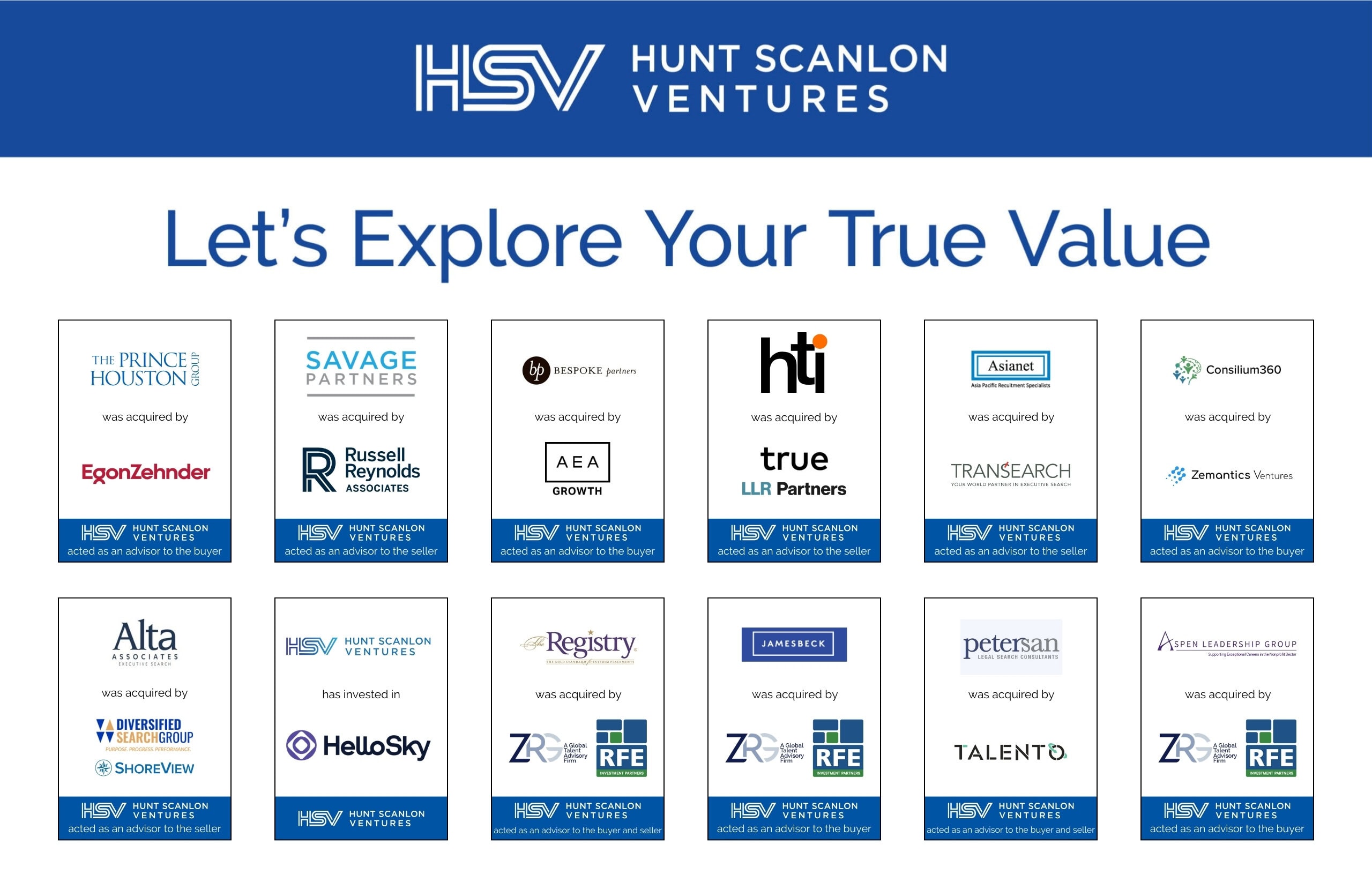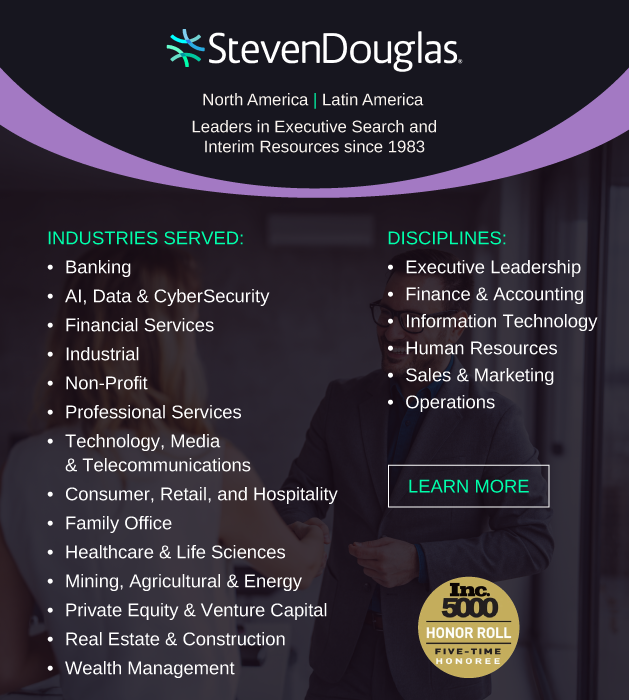Private equity firms globally have amassed record levels of dry powder that they’re ready to deploy. Drew Seaman, managing director of Hunt Scanlon Ventures, unpacks how this will impact human capital markets.
In the closing days of last year, the dry powder held by private equity firms reached a baffling all time high of $2.59 trillion, according to S&P Global Market Intelligence and Preqin data. This marks an 8% increase from the year earlier total of $2.39 trillion.
The unprecedented build-up of dry powder is in part due to the limited opportunities firms saw to deploy capital in 2023. Weak deal activity in the previous year is reflected in S&P’s market intelligence data for the year to Nov. 30, where global private equity deal value showed a 35.6% decline compared to the same period in 2022.
In 2023, smaller deals – especially those involving corporate carveouts and add-on transactions – took center stage. Higher interest rates meant deals without significant third party debt were the focus, according to Genna Marten, a partner on Linklaters‘ private equity team.
Capital Concentration
The concentration of capital is even more astounding when we consider how few firms hold the cards. Only 25 private equity firms, 19 of which are based in the U.S., collectively hold 21.8% of the total dry powder.
Leading the pack with $55.1 billion in uncommitted capital is Apollo Global Management Inc. Several others boast similarly astounding numbers with KKR & Co. Inc. at $43.2 billion, Blackstone Inc. at $29 billion, and Carlyle Group Inc. at $26.9 billion in uncommitted capital. Other U.S. firms included in this elite group are Clayton Dubilier & Rice LLC, TPG Capital LP, Bain Capital Private Equity LP, and Vista Equity Partners Management LLC.
While U.S. firms dominate the dry powder leaderboard, there are several international standouts. Luxembourg based firm CVC Capital Partners was the top firm outside of the U.S. with $39.4 billion, followed by French firm Ardian at $30.8 billion.
Motivation to Sell
The dealmaking frenzy that preceded 2023 set high valuation expectations for sellers that remained elevated even as macroeconomic conditions increasingly slowed deal activity starting the year before. Chris Zochowski, a private equity partner at Shearman & Sterling, reported to S&P that buyer’s appetite for lower asset prices created a valuation gap this past year that led to hesitancy on closing.
The valuation gap between buyers and sellers appears unlikely to persist in the coming year as sellers are increasingly motivated, according to Blackrock. With little to no access to the IPO market and low buyside sponsor demand, the last two years have resulted in well-below-average exit deal volume. Sellers that have held out for the last two years are finally letting go of the unprecedented valuation targets seen in 2021 and becoming increasingly motivated to move now.
As the macroeconomic forces that led to this accumulation of dry powder shift, we find ourselves in a tinderbox of capital ready to be set ablaze by M&A. Shearman & Sterling forecasts an uptick in deal activity in the next 12 months, reflecting a consensus opinion that appears to have formed in the PE space.
According to Blackrock this uptick in activity will largely be driven by “mega forces” – including digital disruption and AI. Blackrock believes that the impact of artificial intelligence might begin in tech, but that it will prove to be a horizontal force with wide-reaching impacts.
Drew Seaman, managing director of Hunt Scanlon Ventures and head of the firm’s investment strategy group, discusses the impact on human capital markets.
Drew, how do you feel about the year to come?
I couldn’t be more excited about what we see on the horizon. Sellers seem more motivated than they were in the previous year which should lead to an increase in deal flow. At HSV, we’re seeing Blackrock’s prediction play out in real time in many of the conversations we’re having. Sellers that have been lukewarm for the past year finally seem to be getting serious.
What’s the dealmaking expectation for your human capital clients?
As 2024 and 2025 unfold, we believe dealmaking will spring back; it won’t be a frenzy of activity but rather a steady flow of deals. Our pipeline has 11 active deals with an additional seven likely to stream in by the end of Q2. That tells us that we are on the cusp of a significant market shift, at least in human capital dealmaking, which is the only lane we swim in. And there is a good reason for this: More and more private equity growth investors view human capital management – which includes executive search, interim solutions, leadership assessment, culture transformation, coaching – as an asset class and investment sector of choice. Businesses in these verticals, at least the ones that we represent, are founder-led with strong margins, great tailwinds, and long runways ahead to accommodate scale.
“Growth investors view human capital management – which includes executive search, interim solutions, leadership assessment, culture transformation, coaching – as an asset class and investment sector of choice. Businesses in these verticals are founder-led with strong margins, great tailwinds, and long runways ahead to accommodate scale.”
Do you see a valuation gap between buyers and sellers?
We do not. The valuation gap in our view has been closing since last August and it is unlikely to reappear between now and the end of 2025. Sellers are increasingly motivated, and buyers are entering the fray looking to bolster their investment platforms with additional bolt-ons. That healthy market dynamic has tightened any gap in valuation we might have seen post-pandemic.
Drew, how are you advising clients as the year begins and deal flow starts to pick up?
As firms begin to deploy capital, we are advising our sell side clients not to rush the process. Good deals take time. And, so, our advice is to let the deal play out. Sellers rarely end up pleased when a transaction is rushed, and a thorough deal process is ignored. Our role is to keep the trains running on time, but more importantly it is keeping those trains on their tracks. Rationality must prevail.
What drives operators to lose rationality in this process?
I think when operators see a trend that seems too good to miss out on it creates risk. AI is a good example of this right now. I agree completely with Blackrock’s assertion that AI will drive M&A in the coming year, but that comes with certain caveats. Just because an opportunity crosses your path doesn’t mean it’s a good one. Blackrock made a “hype warning” in their 2024 Private Markets Outlook report. This technology and its applications are new and evolving, and they require deeper diligence to verify any claims that companies are making.
Article By

Drew Seaman
Drew Seaman is a Managing Director at Hunt Scanlon Ventures. He is responsible for co-managing the firm’s investment portfolio of executive search, talent acquisition, private equity, and investment firms. In addition to sourcing new opportunities and managing the firm’s current investments, Drew leads the technical aspects of client engagements, including valuation and financial analysis and the preparation of investment marketing materials.
Drew began his career in wealth management before joining BMO Capital Markets as an Investment Banking Associate in the Financial Institutions Group. Drew assisted with transaction execution and prepared comprehensive valuation and financial analyses for clients in the specialty finance, asset and wealth management, and insurance sectors.
Drew earned a B.A. in Economics from DePauw University, where he was quarterback on the varsity football team. He earned his M.B.A. with concentrations in Finance and Accounting from NYU’s Stern School of Business. Connect with Drew.






